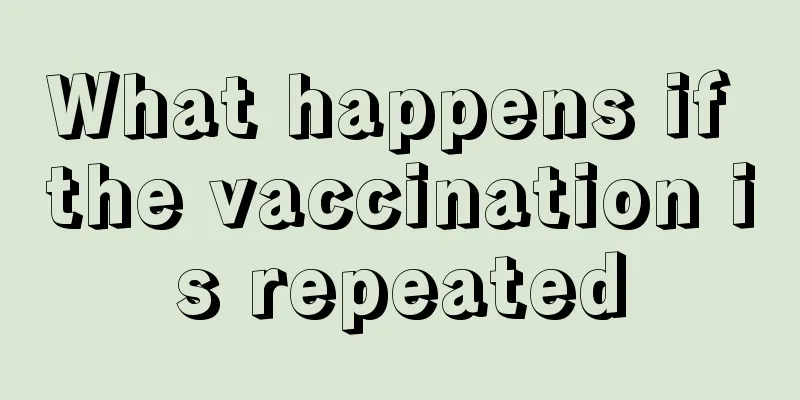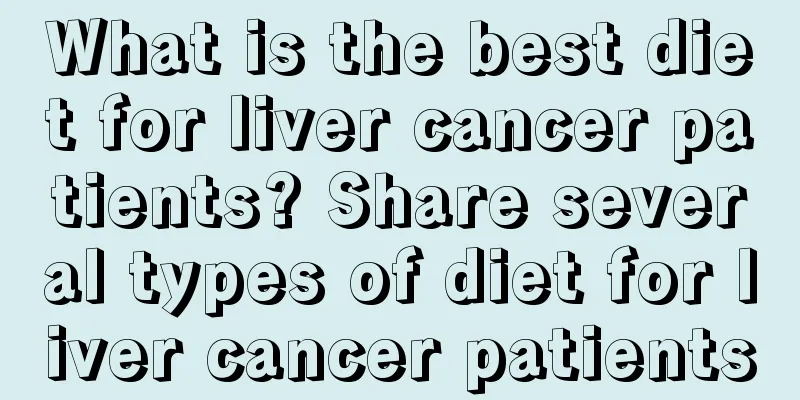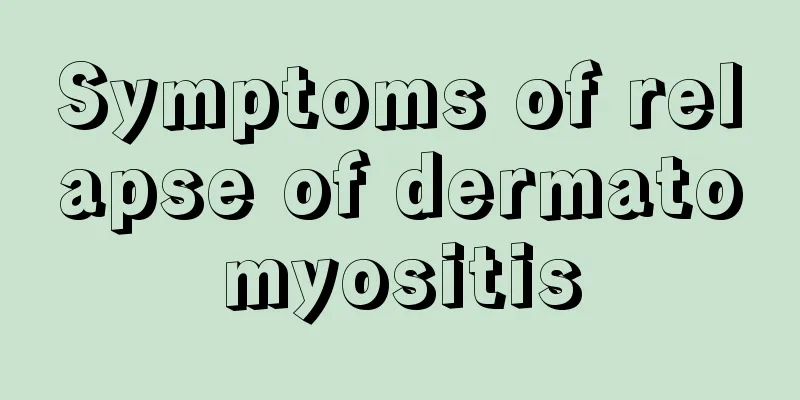What happens if the vaccination is repeated

|
Some people may not remember when they got the vaccination, so the vaccination may be repeated. This will definitely make people very panic. So what will happen if the vaccination is repeated? If you get too few vaccinations, they will be ineffective, but if you get them repeatedly, the harm to your body will not be that great. Some people may even get too much of the vaccine without causing any discomfort. If you know that you have injected too much, you should observe it for a while. If there are no adverse reactions, then it's fine. What are the consequences of overdosing on the hepatitis A vaccine? What if I get one more shot of DPT? What if I get one less shot of the hepatitis B vaccine? To sum up, there are two points. One is to be concerned about whether the vaccine is effective, whether it will be effective if it is given multiple times, repeated times, or missed times; second, whether there will be any reactions if it is given multiple times, repeated times, or missed times, and whether the harm will be greater. Let’s talk about the first point first, effectiveness. Getting less shots will definitely affect the effect. The hepatitis B vaccine is required to have three shots, and you have only gotten two shots. If you missed the last shot, the effect will definitely not be good, and you need to make up for it according to our regulations. Theoretically, if you get more than one shot, it won't have any effect. It depends on how big the interval is between the extra shot and the previous one. If the intervals are close, it may affect the effect, and you will need to take some measures to remedy the situation and give the shots after enough time has passed. This is a multiple-hit situation. Missing doses and insufficient doses are one thing. Different vaccines have different treatments, booster measures, etc. The answer will be given for each specific type of vaccine. Regarding adverse reactions, missing a dose or giving less doses will not increase adverse reactions. However, people are more concerned about whether giving more doses or repeating doses will increase adverse reactions. The probability of adverse reactions is very low, and the probability itself is fixed. Generally speaking, it does not increase the probability and chance of vaccine reaction. There are exceptions in some individual cases. For some vaccines, multiple doses do not increase reactions. For example, for the diphtheria, pertussis and tetanus vaccine, the shorter the time interval, the greater the probability of a reaction. What should I do in a situation like this? How do I know if there will be any problems with my child? Most reactions, especially general reactions, appear within one or two days, and especially within a week. It is rare that they last more than a week. If you take more than one shot, you need to pay attention to observation in the first one or two days or the first week. If there is no reaction, then there is no reaction. If there is, you can get treatment immediately. |
<<: What is the function of urinary follicle-stimulating hormone?
>>: Congenital pyloric hypertrophic stenosis
Recommend
People who often wear synthetic underwear are more likely to develop bladder cancer
A medical study published recently found that peo...
What is the use of silicone oil
Silicone oil is a very important substance and is...
How far is it from cystic breast hyperplasia to breast cancer?
Cystic breast hyperplasia is a disease characteri...
Common postoperative complications of breast cancer
The scary thing about cancer is not only its high...
What to do if perianal inflammation occurs, the method is the most important
Sometimes when a child has diarrhea or after defe...
The causes of hyperkalemia are these 3
Hyperkalemia does not have obvious symptoms, but ...
Signs of high mental stress
Too much mental stress can lead to some other sym...
What causes weak legs in summer
Because of the hot weather in summer, many people...
What are the effects of black crystal?
The formation of crystal is very magical, because...
How long can a patient with advanced liver cancer live in a coma
There is no clear answer to how long you can live...
The harm that teratoma can bring to the body
What harm does teratoma bring to the body? This q...
Can olive oil be used to massage breasts?
Women are most concerned about their skin conditi...
Is it a disease if the echo of liver parenchyma is slightly coarse
Is coarse and slightly fine echo of liver parench...
What gift do men want to receive most?
Men and women have different views on gifts, so t...
Can rubbing the soles of feet with ginger reduce fever?
Babies are not fully developed yet, and when the ...









